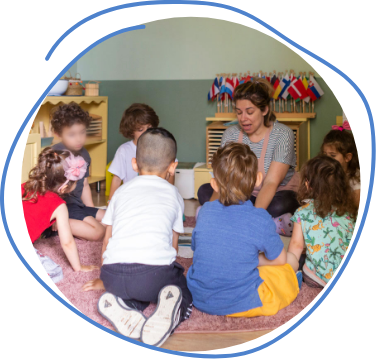As a parent and as a Montessori educator, I feel safe that the Child is in an environment, with people who know his needs and respect them. The Montessori method is a gift of life from Dr. Maria Montessori for all those involved in the upbringing of the Children and in turn a gift to the Children.
Children have a strong natural interest in learning about the world around them and through their natural curiosity they develop. By providing an environment that supports physical development, Children acquire the basic skills they need to be happy. They develop a personality with self-discipline, self-confidence, initiative, independence and love for knowledge. We want to cultivate all these skills in our Child. May all Children have access to Montessorian communities. It is the best prospect for a world of happy and creative people who love working with others.
Angeliki Theodoridou
Educator
Founder of Montessori Community Greenschool
Diploma holder AMI 3-6

 Montessori Pedagogy
Montessori Pedagogy









